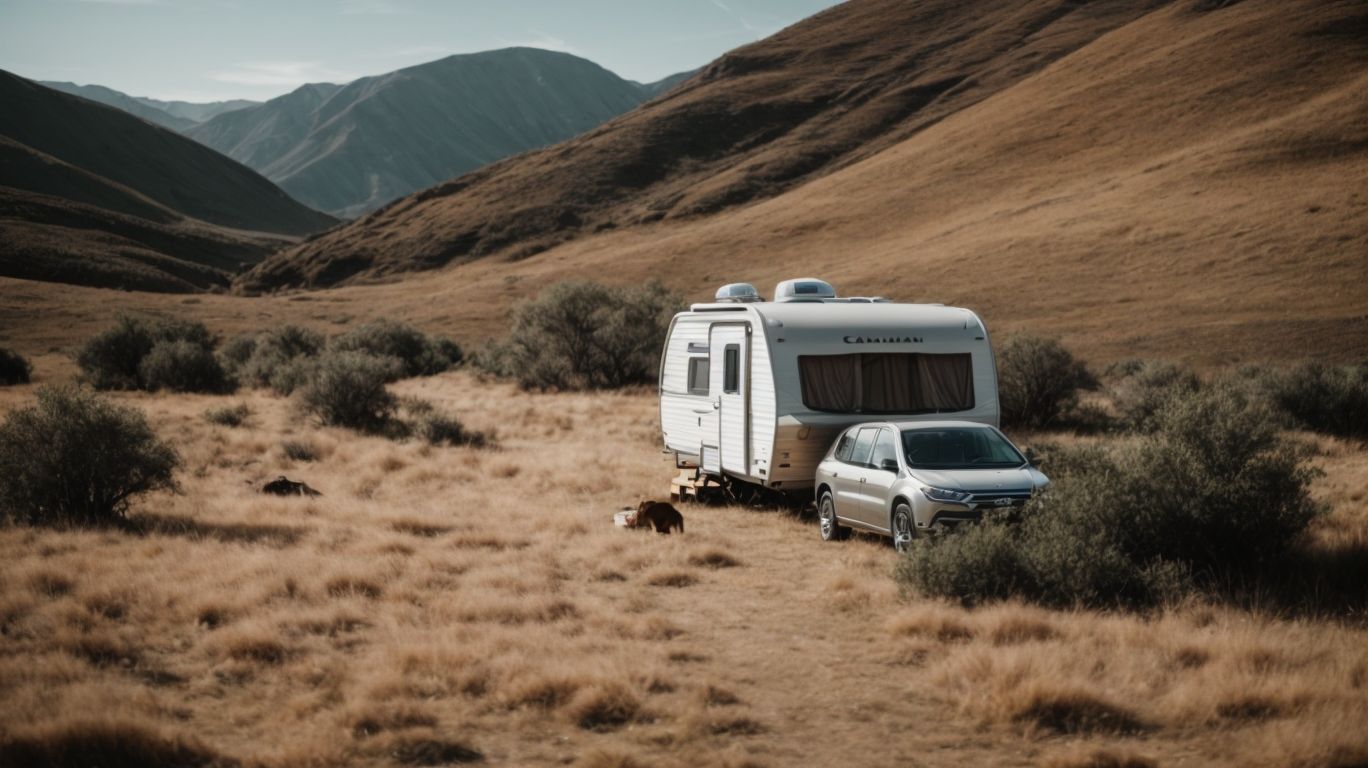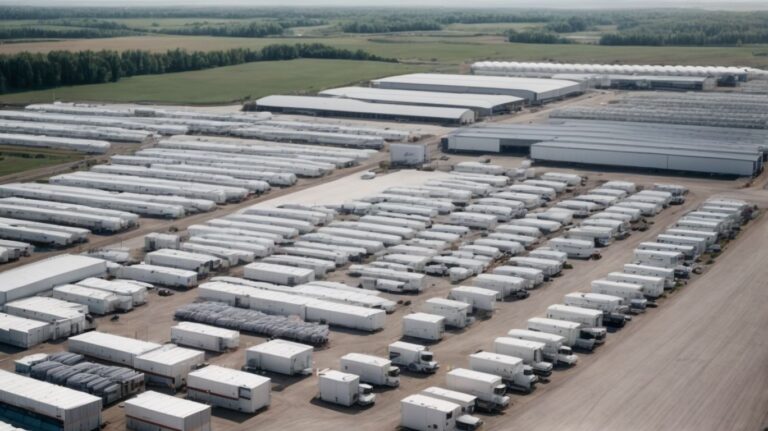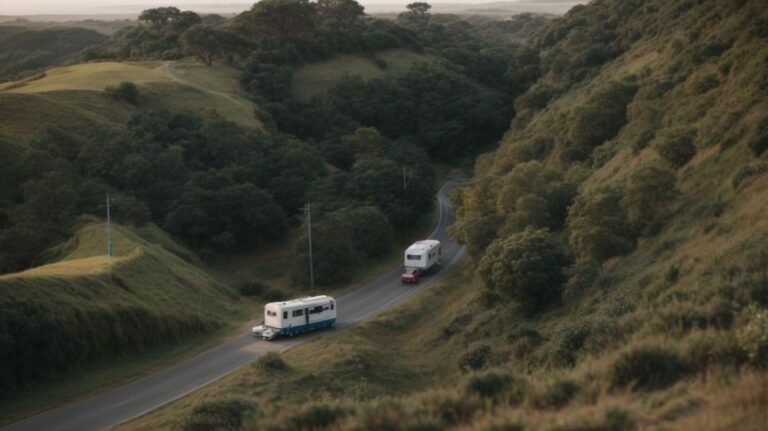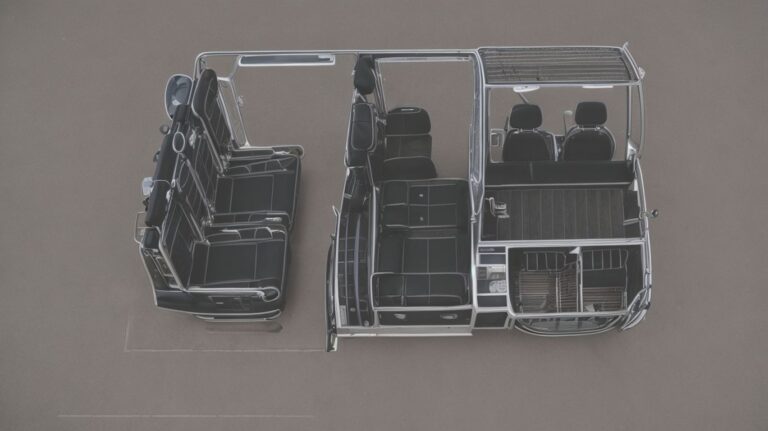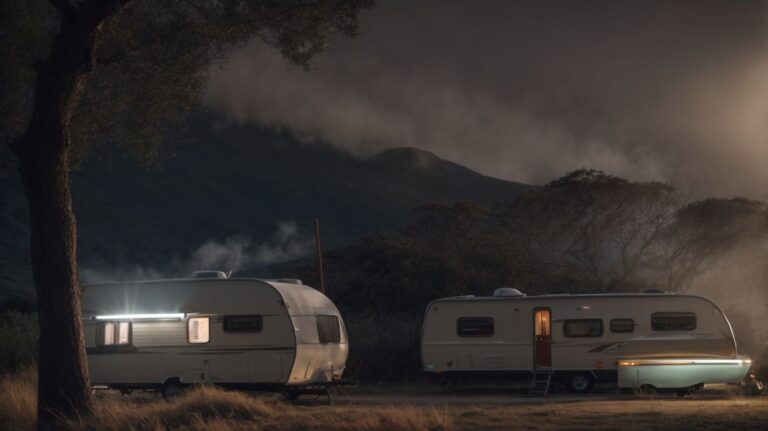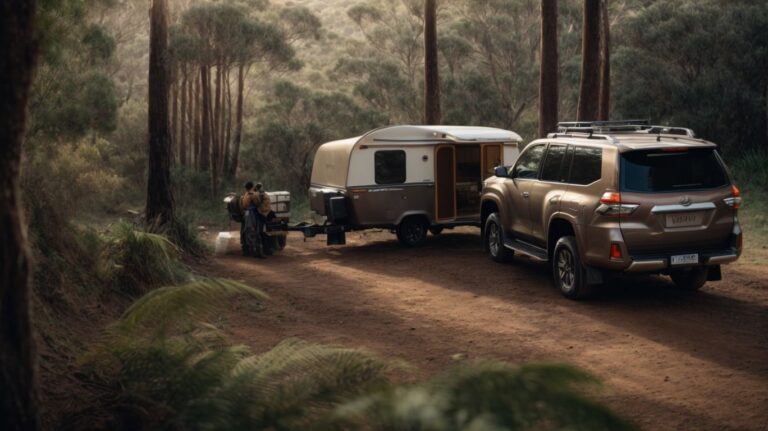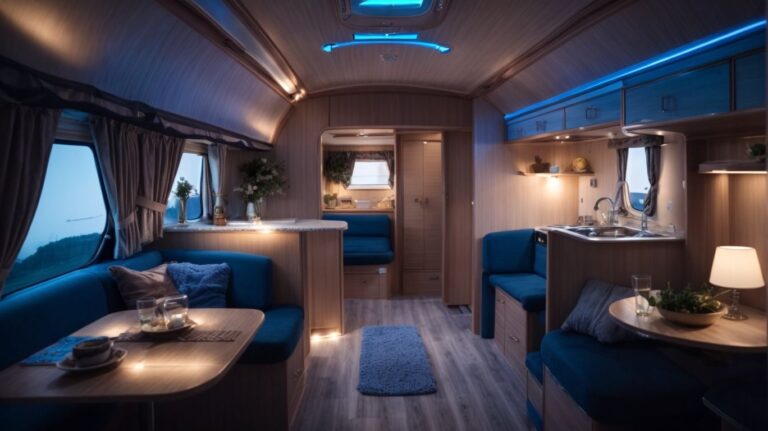Operating Your Caravan Without a Battery: What to Consider
Have you ever wondered what it would be like to operate your caravan without a battery?
We discuss the importance of a caravan battery, alternative power sources, factors to consider before going battery-free, the pros and cons of operating without a battery, tips for conserving power, and safety precautions to take.
Whether you’re a seasoned traveler or a newbie to caravan life, these insights will help you make informed decisions for your next adventure.
Key Takeaways:
What Is a Caravan Battery and Why Is It Important?
A caravan battery, especially a leisure battery, is a crucial component that powers your caravan’s appliances and electrical systems when you’re away from mains supply.
Whether you’re camping off-grid or traveling long distances, having a reliable caravan battery is essential for maintaining comfort and convenience during your adventures. Leisure batteries are specifically designed to handle the demands of leisure vehicles, providing a steady power supply for running devices like fridges, lights, water pumps, and chargers.
These batteries are capable of deep discharges without damage, unlike traditional car batteries. This feature ensures that you can safely rely on your leisure battery to support your caravan’s electrical needs without the risk of losing power unexpectedly.
What Are the Alternatives to Using a Caravan Battery?
When considering alternatives to a caravan battery, solar panels, generators, and hooking up to a power source stand out as viable options to maintain your power supply.
If you are looking to harness sustainable energy for your caravan, solar panels can be an excellent choice. By converting sunlight into electricity, solar panels offer a clean and renewable power source. They are low maintenance and can reduce your carbon footprint. Solar panels are weather-dependent and may not be as reliable in overcast conditions. Generators, on the other hand, provide a reliable power source but can be noisy and require fuel. Hooking up to a power source at campsites ensures a continuous supply but limits your mobility.
Solar Panels
Solar panels offer an eco-friendly way to harness energy for a caravan, converting sunlight into electricity to power its devices and appliances.
The installation of solar panels on caravans is designed to be efficient and unobtrusive, typically mounted on the roof to maximize exposure to sunlight throughout the day. The panels consist of photovoltaic cells that generate electricity when exposed to sunlight, which is then stored in batteries for later use. This setup allows caravans to operate off-grid, reducing reliance on traditional power sources and increasing energy efficiency.
Generator
Generators serve as a reliable power source for caravans, providing on-demand electricity to run appliances and charge devices when other power options are limited.
Generators for caravans play a crucial role in ensuring continuous power supply during outdoor adventures or camping trips. These devices are designed to convert fuel into electrical energy, offering a convenient solution when traditional power sources are not accessible. Generators come in various sizes and power capacities, catering to different energy needs of caravan owners. They typically require fuel such as gasoline, diesel, or propane to operate efficiently, with some models offering dual-fuel capabilities for added flexibility. Most generators produce AC power compatible with common household appliances and electronic devices, making them versatile backup solutions for caravan enthusiasts.
Hooking Up to a Power Source
Connecting your caravan to a power source, such as a 240v supply, ensures a continuous flow of electricity to operate your appliances and charge devices efficiently.
One of the key safety measures while setting up your caravan power connection is to use a residual current device (RCD) to protect against electric shock.
It’s essential to inspect all cables and plugs for damage before plugging in.
Once connected, you can power up your refrigerator, lights, air conditioning, and other essential appliances, making your caravan feel like a home away from home.
Remember to switch off all appliances when not in use to prevent unnecessary power drain and ensure a longer-lasting battery life.
What Are the Factors to Consider Before Operating a Caravan Without a Battery?
Before opting to operate your caravan without a battery, it’s crucial to assess factors such as the trip duration, power requirements, and availability of power sources at your destination.
Considering the trip duration is essential; for shorter trips, you may rely on residual power or alternative sources, while longer journeys might necessitate a reliable power supply. Calculating power consumption of your electrical systems and appliances, such as lighting, heating, and fridge, is also imperative.
Analyzing the availability of power sources at designated campgrounds or sites can help determine if relying solely on internal caravan wiring is feasible. Factoring in emergency power solutions or portable generators for backup can provide additional peace of mind during your travels.
Length of Trip
The duration of your caravan trip plays a significant role in determining the power needs and solutions required to sustain your electrical appliances throughout the journey.
When embarking on a shorter caravan trip, focusing on energy-efficient practices becomes paramount to maximizing power longevity. Implementing simple yet effective strategies such as turning off appliances when not in use, utilizing natural light during daylight hours, and opting for energy-efficient appliances can help optimize power consumption.
On longer caravan journeys, planning ahead is key. Consider investing in portable solar panels or generators to recharge batteries along the way. Carrying a backup power source like a portable power bank can be a lifesaver in remote locations. Being mindful of power usage can significantly extend the battery life of your caravan, enhancing the overall travel experience.
Power Needs
Understanding your caravan’s power needs is essential for efficient operation, ensuring that your electrical system can support the devices you intend to use.
Regarding assessing power requirements for caravans, taking stock of the various appliances and devices that will be in use is crucial. From lighting and heating systems to kitchen appliances and entertainment gadgets, each item draws a specific amount of power. By understanding the power draw of each device, you can estimate the total power supply needed.
It’s essential to be aware of the limitations of your electrical system within the caravan. The capacity of the batteries, the efficiency of the inverter, and the capabilities of the solar panels all play a critical role in determining how much power can be safely utilized.
To optimize your power supply, consider investing in renewable energy sources like solar panels or wind turbines. These can supplement the caravan’s power system, reduce reliance on traditional power sources, and make your travels more environmentally friendly.
Another aspect to consider is ensuring that the devices you intend to use are compatible with the power capacity of your caravan. Devices that draw too much power can overload the system, while those that draw too little may not function properly. Ensuring compatibility between devices and power supply is key to a seamless experience on the road.
Location and Availability of Power Sources
The location of your caravan trip and the availability of power sources at various sites determine the feasibility of operating without a battery and the reliance on external power connections.
Consider factors such as campsite facilities, proximity to electrical hookups, and the duration of your stay when planning your caravan journey.
Choosing a campsite with electric hookups ensures a convenient power source for your appliances and devices, reducing the need for battery backup or portable generators.
Alternatively, if you opt for more remote locations without direct power access, solar panels or portable power stations can be invaluable assets.
Assessing the power requirements of your caravan appliances and devices will help you determine the appropriate energy sources needed for a comfortable camping experience.
Type of Caravan and its Electrical System
The type of caravan you own and its electrical system design significantly influence the feasibility and safety of operating without a battery, impacting the compatibility with external power sources.
Caravans come in various models, each with distinct energy demands that directly affect power usage. For instance, modern caravans equipped with sophisticated electrical systems may require a higher level of energy management compared to older models. Appliance compatibility is crucial when considering power sources; refrigerators, microwaves, and air conditioning units draw significant power, necessitating a reliable electrical setup.
When connecting your caravan to a power source, the converter’s capacity plays a vital role. A converter transforms external power into a usable form for your appliances, ensuring efficient operation. Choosing a converter with sufficient capacity is essential to avoid overloading the system.
What Are the Pros and Cons of Operating a Caravan Without a Battery?
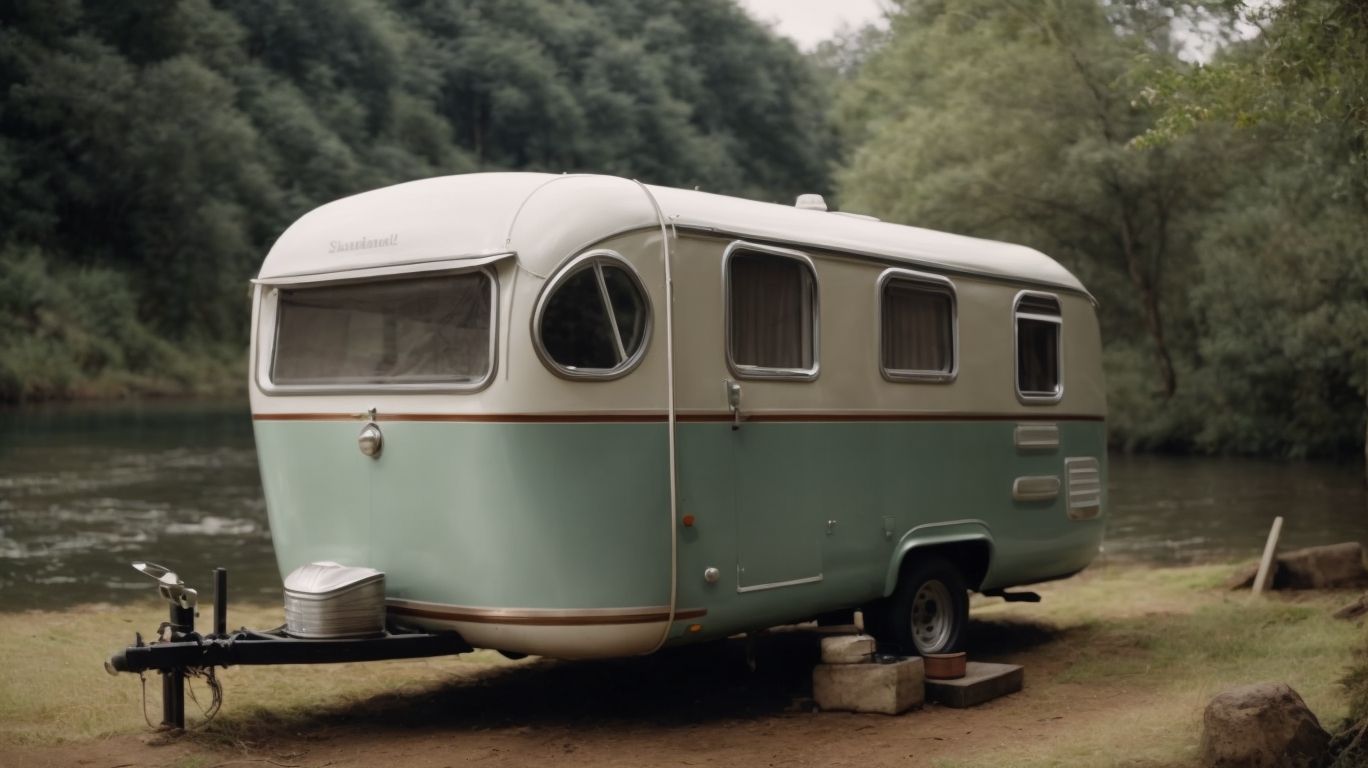
Credits: Motorcaravanning.Com – Albert Thompson
Operating a caravan without a battery presents advantages like reduced weight and simplified setup, yet it brings potential drawbacks such as limited power supply and reliance on external sources.
When opting to run a caravan without a battery, one key benefit is the significant reduction in overall weight, making towing and maneuvering the caravan easier and less stressful while on the road. Not having to worry about maintaining and replacing a heavy battery can simplify the setup process, offering a more streamlined experience.
It’s essential to consider the power limitations associated with this approach. Without a battery, you’ll have restricted access to stored power, potentially affecting the operation of essential devices like lights, appliances, and electronic gadgets.
Pros of Not Using a Battery
The advantages of operating a caravan without a battery include reduced weight for towing and simplified setup processes without the need for battery maintenance.
Without the added weight of a battery, caravanners can experience improved fuel efficiency, smoother towing experiences, and a lower impact on the environment due to reduced emissions. The setup of a battery-less caravan is streamlined, eliminating the hassle of battery checks, charging, and replacements.
Travelers can enjoy cost savings as they no longer need to invest in expensive battery systems or worry about battery degradation over time. With advanced solar power technology easily integrated into the caravan, users can embrace a more sustainable and independent way of accessing power while on the road.
Cons of Not Using a Battery
The drawbacks of operating a caravan without a battery involve limitations in power supply, reliance on external sources, and potential damage to electrical appliances due to unstable connections.
One of the primary challenges faced when a caravan lacks a battery is the significant power constraints that arise. Without a battery, the caravan relies solely on external sources for electricity, which can be unreliable and lead to disruptions in power supply. In such scenarios, the risk of damaging electrical appliances due to fluctuating or unstable connections increases substantially, posing a threat to both the appliances and the overall safety of the caravan’s electrical system.
What Are Some Tips for Conserving Power While Operating a Caravan Without a Battery?
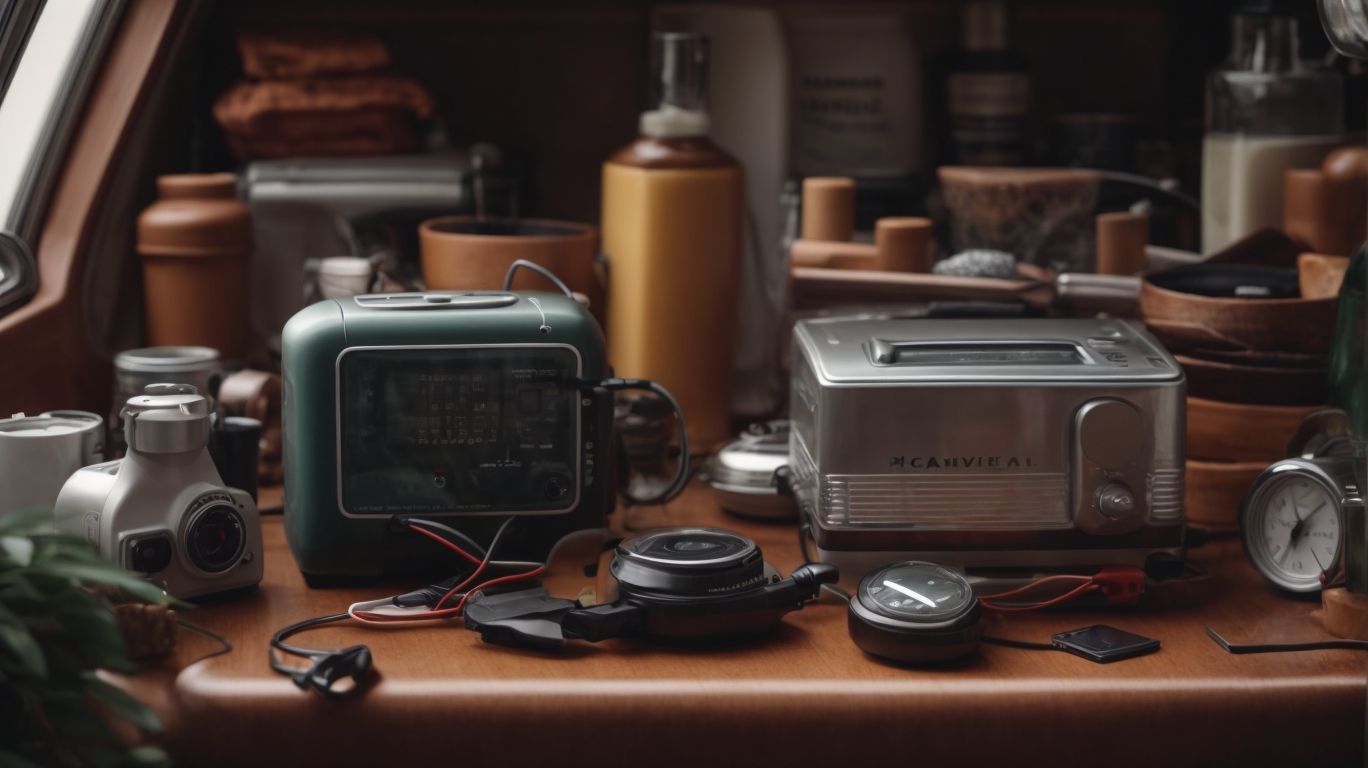
Credits: Motorcaravanning.Com – Christian Wright
To conserve power when running a caravan without a battery, focus on using energy-efficient appliances, limiting high-powered devices, and leveraging natural light whenever possible.
When selecting appliances for your battery-less caravan, opt for low-energy-consuming devices that are specifically designed for off-grid use. Look for labels indicating energy efficiency ratings to help you make informed choices. Managing power in your setup requires thoughtful planning; consider using power strips to easily disconnect multiple devices at once when not in use. Embracing the natural light can significantly reduce the need for artificial lighting, so positioning your caravan strategically to maximize sunlight exposure is key.
Use Energy-Efficient Appliances
Opting for energy-efficient appliances in your caravan minimizes power consumption, extending the operational duration without a dedicated battery.
Energy-efficient appliances play a crucial role in reducing the overall power load when you are living off-grid in a battery-less caravan setup. By choosing appliances such as refrigerators, lighting, and chargers that have high energy ratings and low standby power consumption, you can maximize the usage time without worrying about draining your power source. This not only saves you money in the long run but also ensures that you have a sustainable power solution for all your needs. These appliances are specifically designed to optimize energy usage, thereby reducing your overall environmental footprint while enhancing your camping experience.
Limit Use of High-Powered Appliances
Restricting the usage of high-powered appliances in the caravan helps maintain a stable power supply and prevents overloading circuits in battery-less configurations.
When managing high-power devices in battery-free caravan setups, it’s crucial to consider the stabilizing circuitry to ensure a consistent voltage output. Load balancing becomes essential to distribute power efficiently among various appliances. Implementing proper power distribution strategies can prevent voltage spikes and fluctuations, safeguarding the caravan’s electrical systems.
When dealing with heavy-duty equipment such as motor movers, a well-designed circuit with adequate safety features is vital to protect both the devices and the caravan’s electrical infrastructure from potential damage due to power surges or short circuits.
Use Natural Light Whenever Possible
Leveraging natural light sources inside your caravan reduces reliance on artificial lighting, contributing to power conservation efforts and extending battery-less operation durations.
One of the key benefits of utilizing natural light in caravan setups is the significant reduction in energy consumption. By strategically positioning windows, skylights, and other light sources, you can optimize the illumination inside the caravan without the need for additional power sources. This not only leads to cost savings but also enhances the overall sustainability of your mobile living space.
Maximizing natural light can also positively impact the environment by reducing the carbon footprint associated with energy production and consumption. By harnessing the sun’s energy during the day, you can minimize the use of fossil fuels or electricity for lighting purposes, thereby decreasing greenhouse gas emissions and promoting eco-friendly practices.
What Are Some Safety Precautions to Take When Operating a Caravan Without a Battery?
When running a caravan without a battery, ensure you have a backup power source, regularly check and maintain the electrical system, and be mindful of power usage to prevent damage or accidents.
One critical aspect of operating a battery-less caravan safely is to verify the power supply. Before setting out on your journey, always confirm that your backup power source is fully charged and functioning effectively. This step ensures that you have a reliable source of electricity in case of emergencies or unexpected power outages.
It is essential to pay close attention to the towbar socket safety when connecting your caravan to the towing vehicle. Make sure the connections are secure, and there are no exposed wires or damages that could lead to electrical hazards.
Practicing system maintenance is key to prolonging the lifespan of your caravan’s electrical components. Regularly inspecting and cleaning the wiring, outlets, and appliances can help prevent malfunctions and accidents due to wear and tear.
Have a Backup Power Source
Maintain a reliable backup power source, such as a generator or spare battery, to address unexpected power outages and emergencies during caravan trips without a dedicated battery.
Having backup power arrangements is crucial for ensuring uninterrupted power supply in battery-less caravan setups. In emergency situations where you might encounter prolonged power cuts, having a backup power source like a generator can make a significant difference. It not only provides a sense of security but also ensures that essential devices and appliances can continue to function smoothly.
During caravan trips, the charger connection plays a vital role in maintaining the power supply stability. By having backup power options readily available, you can quickly switch over to an alternative power source in case of any unexpected issues with the primary power supply.
Regularly Check and Maintain Electrical System
Perform routine checks and maintenance on your caravan’s electrical system to ensure proper operation, identify potential issues, and prevent electrical hazards in battery-free setups.
Regular inspection of the power connection points is crucial to spot any loose wires, corrosion, or overheating that could lead to system failure or even fire hazards. Testing the stabilizing circuits should involve verifying proper voltage levels, resistance, and grounding to ensure the safety and efficiency of the caravan’s electrical setup.
Following specific guidelines for safety precautions, such as wearing insulated gloves and using appropriate testing equipment, is essential when dealing with live circuits. Properly maintained electrical systems not only enhance the functionality of your caravan but also provide peace of mind during your travels.
Be Mindful of Power Usage and Limitations
Monitor your power usage closely, understand the system limitations, and prioritize essential appliance usage to prevent overloading circuits and damaging electrical devices in battery-less caravan configurations.
When setting up a battery-free caravan, it’s crucial to be conscious of the power thresholds to avoid any abrupt shutdowns or damage to the sensitive electrical equipment. By managing the load effectively, you can ensure a stable and efficient operation of your caravan’s electrical system, maximizing the available power resources. Implementing smart appliance prioritization methods can help in distributing power efficiently, allowing you to run essential devices without jeopardizing the performance of the overall setup.
Paying attention to the towing connections and ensuring proper electrical safety precautions are essential aspects of maintaining a safe and functional caravan setup. By adhering to recommended guidelines and best practices, you can enjoy your off-grid adventures without worrying about power-related mishaps.
Frequently Asked Questions
Can I operate my caravan without a battery?
Yes, it is possible to operate your caravan without a battery. However, there are some important considerations to keep in mind.
What are the main things to consider when operating a caravan without a battery?
When operating a caravan without a battery, you need to consider your power source, lighting, and electronic devices.
What are some possible power sources for a caravan without a battery?
Some possible power sources for a caravan without a battery include solar panels, generators, and hooking up to a power source at a campsite.
How do I ensure my lights work without a battery?
If you are using a power source such as solar panels or a generator, you should be able to operate your lights without a battery. Alternatively, you can use battery-powered lights or lanterns.
Can I still use my electronic devices in a caravan without a battery?
Yes, you can still use electronic devices in a caravan without a battery, but you will need to have a power source to charge them, such as a solar panel or generator.
Are there any disadvantages to operating a caravan without a battery?
One major disadvantage is that you will not have a backup power source in case your main power source fails. It is also important to carefully monitor your power usage to avoid draining your power source.

